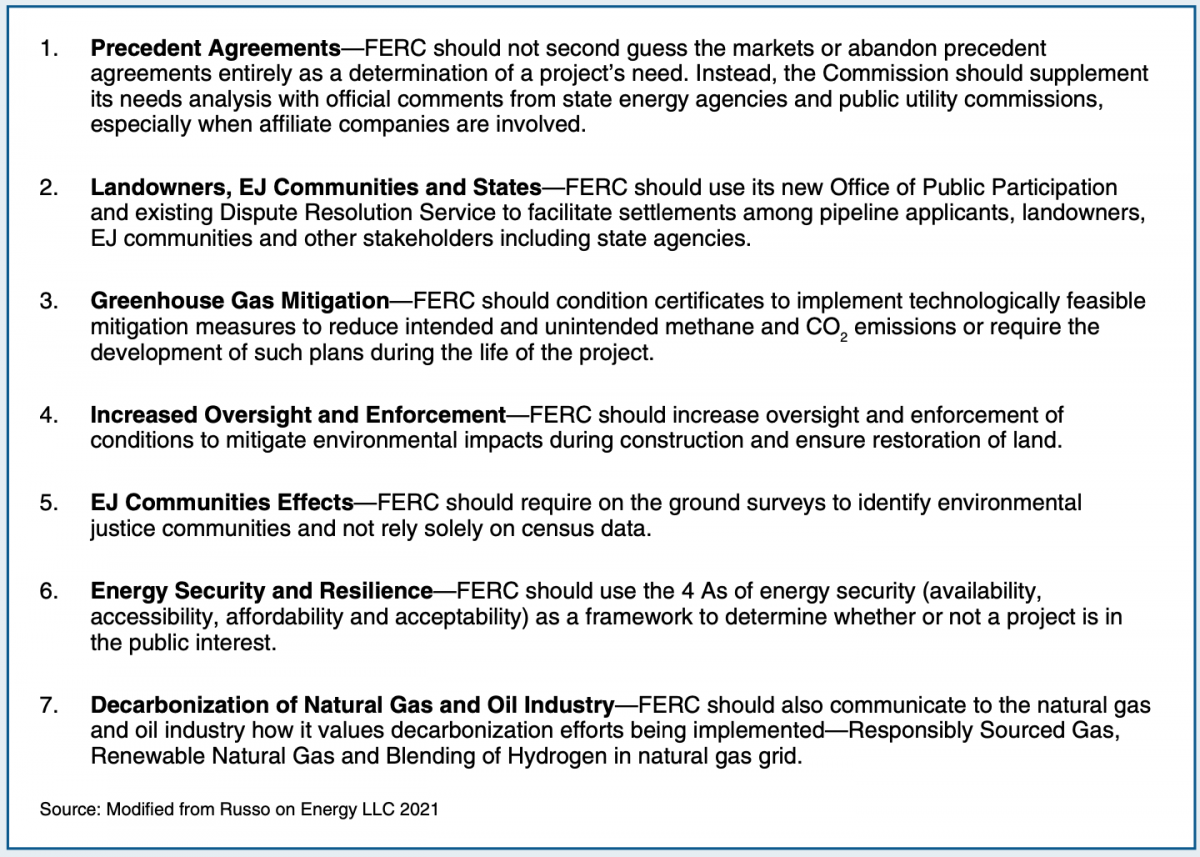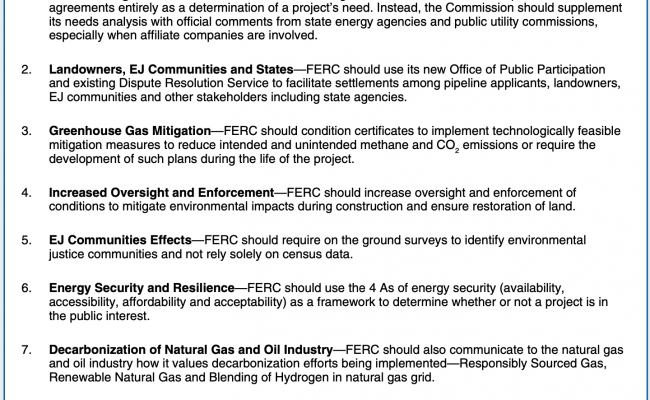FERC does not have the luxury to focus only on NEPA and issues dealing with GHG emissions, landowner and environmental justice (EJ) community issues. While important issues, interstate natural gas facilities are critical infrastructure. FERC’s decisions on new interstate natural gas facilities will have to equally consider energy security and resilience of the natural gas and the electric grids. The latter may be of paramount importance and outweigh final decisions that can adversely affect the environment, climate change, landowner and EJ communities.
FERC currently is under enormous pressure to show progress in addressing climate change, landowner issue. However, the Commission should resist the temptation to craft a "One Size Fits All" review and deny projects based on controversy associated with specific projects. Instead, FERC needs to step up and do what good regulators do, i.e. apply its best judgement on a project’s need and merits on a case-by-case basis to determine what is in the public interest. That means conditioning the approved projects to implement necessary mitigation and enforcing that during the construction and operation of the projects. The natural gas industry is up to the task and those who are not or refuses to do so should suffer the consequences. A Revised Pipeline Policy Statement with key elements could be instrumental in sending the proper signals to the natural gas industry, markets, stakeholders and the courts on how FERC will consider whether a project is in the public interest (Table 1). Download the rest of the article from the Climate and Energy Journal.
Table 1. Key Elements Needed in FERC’s Revised Pipeline Policy


